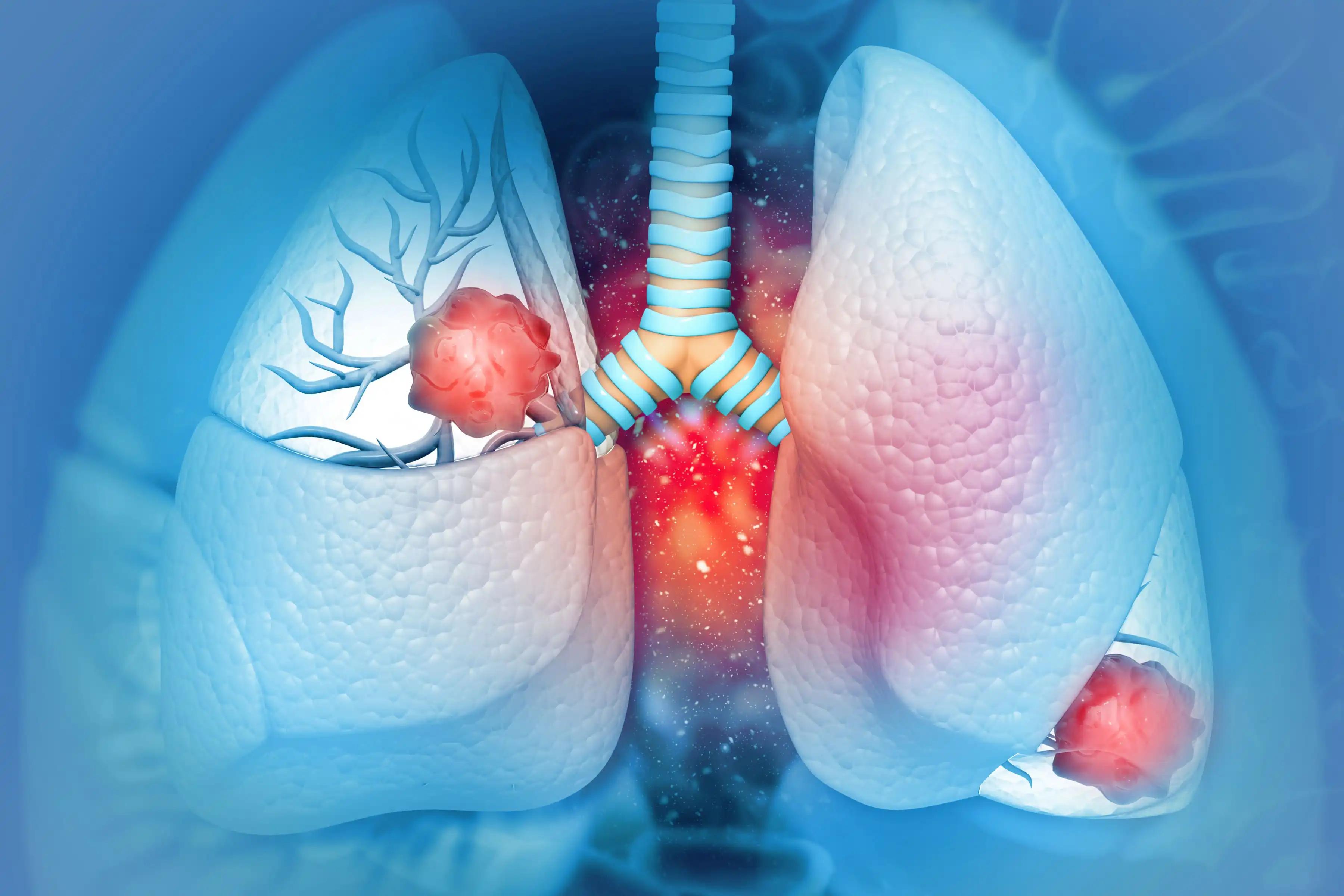KEY TAKEAWAYS
- The phase 3 trial aimed to assess the link between longitudinal PROs and step counts and their connection with hospitalization or death.
- The study found patients with advanced cancer with higher symptom burden and decreased step count faced worsened outcomes.
Patients with advanced lung cancer undergoing chemotherapy often encounter notable symptoms and functional declines, correlating with unfavorable outcomes. Remote monitoring of patient-reported symptoms (PROs) and step counts can proactively flag individuals at risk of hospitalization or death.
Christopher R Manz and the team aimed to assess how longitudinal PROs correlate with step counts and how both PROs and step counts relate to hospitalization or death.
In the PROStep randomized trial, 108 patients diagnosed with advanced gastrointestinal or lung cancers undergoing cytotoxic chemotherapy at a major academic cancer center were enrolled. They were randomly assigned to receive either weekly text-based monitoring of 8 PROs along with continuous step count monitoring using Fitbit (Google) or usual care.
This planned secondary analysis involved 57 of 75 patients who were allocated to the intervention arm and had available PRO and step count data. Researchers examined the relationships between PROs and average daily step counts, also the associations of both PROs and step counts with the combined outcome of hospitalization or death. Bootstrapped generalized linear models were utilized to accommodate longitudinal data.
The results revealed that among the 57 patients analyzed, with a mean age of 57 (SD 10.9) years, 24 (42%) were female, 43 (75%) had advanced gastrointestinal cancer, and 14 (25%) had advanced lung cancer. During the follow-up period, 25 (44%) were hospitalized or died.
A weekly increase of 1 point in the aggregate PRO score, measured on a 32-point scale, was associated with a reduction of 247 mean daily steps (95% CI -277 to -213; P<.001). The PROs most strongly linked to a decline in step count were patient-reported activity (daily step change -892), nausea score (-677), and constipation score (524).
Additionally, a weekly increase of 1 point in the aggregate PRO score was associated with a 20% higher likelihood of hospitalization or death (aOR 1.2, 95% CI 1.1-1.4; P=.01). PROs most strongly associated with hospitalization or death included pain (aOR 3.2, 95% CI 1.6-6.5; P<.001), decreased activity (aOR 3.2, 95% CI 1.4-7.1; P=.01), dyspnea (aOR 2.6, 95% CI 1.2-5.5; P=.02), and sadness (aOR 2.1, 95% CI 1.1-4.3; P=.03).
Furthermore, a decrease of 1000 steps was linked to a 16% higher odds of hospitalization or death (aOR 1.2, 95% CI 1.0-1.3; P=.03). Compared to baseline, the mean daily step count decreased by 7% (n=274 steps), 9% (n=351 steps), and 16% (n=667 steps) in the 3, 2, and 1 weeks before hospitalization or death, respectively.
The study concluded that in this secondary analysis of a randomized trial involving patients with advanced cancer, elevated symptom burden and reduced step count were independently linked to and predictably exacerbated near the time of hospitalization or death. The findings underscore the potential of utilizing longitudinal PRO, and step count data to guide interventions tailored toward individuals at risk for adverse outcomes.
The trial was sponsored by the Abramson Cancer Center at Penn Medicine.
Source: https://pubmed.ncbi.nlm.nih.gov/38758583/
Clinical Trial: https://clinicaltrials.gov/study/NCT04616768
Manz CR, Schriver E, Ferrell WJ, et al. (2024). “Association of Remote Patient-Reported Outcomes and Step Counts With Hospitalization or Death Among Patients With Advanced Cancer Undergoing Chemotherapy: Secondary Analysis of the PROStep Randomized Trial.” J Med Internet Res. 2024 May 17;26:e51059. doi: 10.2196/51059. PMID: 38758583.



